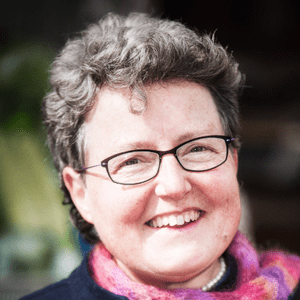At Cambridge I took both parts of the Classics Tripos, specialising in Ancient Philosophy in Part II, together with an option paper in Patristics. My first philosophy teachers were (Sir) Geoffrey Lloyd, G.E.L. Owen, and Myles Burnyeat. My PhD, in the Cambrige Classics Faculty, was interdisciplinary between Classics and Patristic Theology, supervised by Christopher Stead, the Ely Professor of Divinity. I attended ancient philosophy seminars with G.E.L. Owen (until his death) and Myles Burnyeat, and Patristic seminars in the Theology Faculty with Henry Chadwick, Rowan Williams and Christopher Stead. The PhD thesis, on Hippolytus of Rome and the Presocratics, was subsequently published by Duckworth, as Rethinking Early Greek Philosophy. In 1984 I took up a Junior Research Fellowship at New Hall in Cambridge, and in 1987 I moved to Oxford to a British Academy Postdoctoral Fellowship (in the Philosophy Faculty), with a Senior Research Fellowship at St Anne’s College. During these years I worked on the idea of erotic love in Plato and other thinkers, leading to my second book, Eros Unveiled published by Oxford University Press. In 1990 I moved to a lectureship in the Philosophy Department at Swansea. It was there that I became a philosopher and not just a classicist and patrologist. My role had been formerly held by Rush Rhees, and included 60 lectures on the Presocratics, compulsory for second years. The Swansea Department was large, having grown as a result of the closure of two other Welsh departments, and besides DZ Phillips there were several other Wittgensteinian philosophers, such as H.O. Mounce, Ilham Dilman, and R.W. Beardsmore. It was probably the strongest Wittgensteinian department in the UK, and was to expand further over the next few years, recruiting a number of young lecturers from the same tradition. Unfortunately, not all the Wittgensteinians in Swansea agreed on philosophical or academic values, and the department was racked by bitter and often tragic internal strife throughout the nineties. It was eventually destroyed by its own forces of self-destruction. Nevertheless, in its heyday it was an inspirational School, and changed my life and my philosophical outlook for good. During my time in Swansea I was commuting weekly from Oxford, where I was fortunate to be able to take some part in the philosophical scene. In particular I was a member from its earliest days of the legendary Friday morning De anima seminar run by David Charles and attended by Michael Frede. In 2000 I left Swansea, along with some other members of that department. For three years (2000 to 2003) I was Reader in Greek Culture at the University of Liverpool in the Classics Department (part of the School of Archaeology, Classics and Egyptology), where I taught Intermediate Greek, Tragedy, Women, and Myth to students taking degrees in Classical Studies and Ancient History. The fruits of my years in Swansea and in Liverpool emerged in my 2007 book Dumb Beasts and Dead Philosophers. In 2003 I moved to UEA as a Lecturer in Philosophy, promoted to Reader in 2006 and to Professor in 2008. I held an AHRC Fellowship for the Autumn semester 2004, and a Leverhulme Research Fellowship from 2007-9. I was Head of School from 2005 to 2008, during which I oversaw the growth of the School from 5 to 11 research-active staff, the development of a lively Wittgensteinian research group, the introduction of two new Masters programmes, and an expansion of the undergraduate and graduate provision in ancient philosophy. I served on the REF panel for REF 2014, and I served on the Leverhulme Advisory Panel for 8 years. I have also served as a Member of the AHRC Peer Review College, and as a Strategic Peer Reviewer for the AHRC. In May 2019 I was elected to the European Parliament as the Green Party MEP for the Eastern Region, and served the first seven months of the five year term for which I was elected. Due to the UK leaving the EU, this came to an end in January 2020. I now divide my time between research in philosophy and free lance political work including speaking engagements around the UK and elsewhere in the world. I also supervise graduate students.

